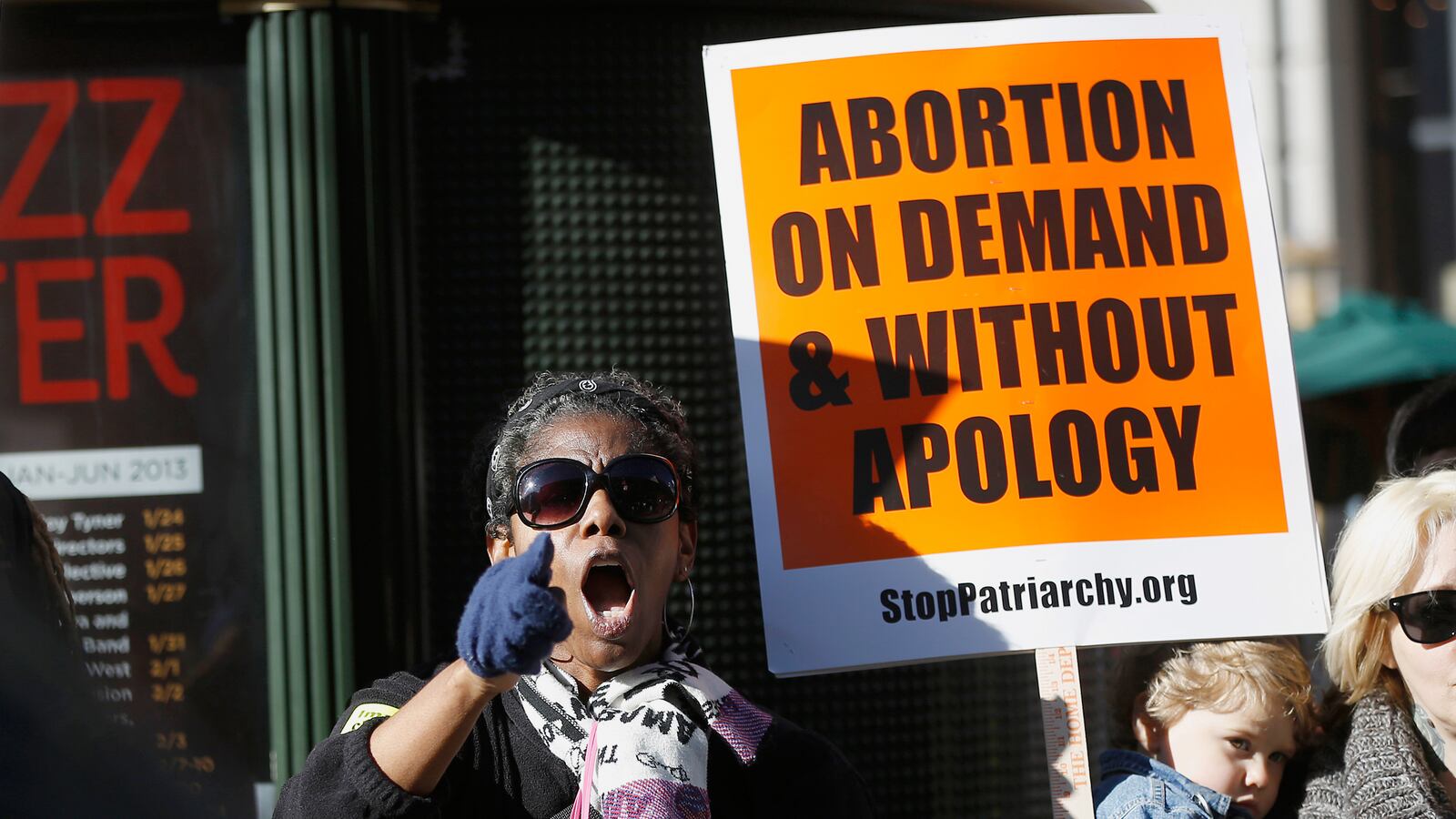On Friday morning at 9:30 a.m., Mary (not her real name) walked into a Planned Parenthood in St. Louis, Mo., and requested an abortion. When they told her she would have to wait 72 hours, the state’s mandatory waiting period, and undergo an ultrasound, she handed them a prepared letter:
“As an adherent to the principles of the Satanic Temple, my sincerely held religious beliefs are: My body is inviolable and subject to my will alone,” it begins.
The letter (PDF) goes on to assert her religious right to decision making; argues that the Missouri law requiring a woman to wait before proceeding with the abortion is against aforementioned religious beliefs; and ends: “I respectfully request that you provide me with an abortion today.”
Shortly after presenting this letter, Mary, with the backing of the Satanic Temple, a country-wide organization of satanists, filed suit (PDF) against the state of Missouri. She and the Temple hope to use the Federal Religious Freedom Restoration Act (“RFRA”) in the same way that Christian groups have used it to avoid providing contraception to women or baking cakes for gay weddings.
They also hope it will knock down the controversial 72-hour abortion waiting period required in Missouri and three other states. The law forces women to consider their decision for 72 hours after requesting an abortion. Just Thursday, Oklahoma tripled its law from 24 to 72 hours.
Two weeks ago, Mary, who declined to speak to The Daily Beast, reached out to local Satanic Temple leadership, which connected her with the group’s national organization.
There she spoke to the spokesman and a founder of the Satanic Temple, a man named Doug Mesner, though he goes by a pseudonym Lucien Greaves. He helped start the organization two years ago to organize satanists across the United States, and estimates membership is now in the “tens of thousands.” Mesner was eager to pursue Mary’s case. After the Hobby Lobby ruling in July, he and the Satanic Temple’s leadership realized there would be a moment for them to use religious freedom in the fight for women’s reproductive rights.
The lawsuit is being argued under RFRA. “The Decision is substantially motivated and informed by Mary Doe’s belief in the Tenets,” the lawsuit states. “Thus its implementation, i.e., getting an abortion, is the ‘exercise of religion’ protected by the Religious Freedom Restoration Act (“RFRA”).”
One of the group’s seven fundamental tenets states: “Beliefs should conform to our best scientific understanding of the world.” Mesner believes this is being violated in Missouri and other states. “The informed consent material women are supposed to be considering is null and void in our opinion—it’s medically irrelevent and scientifically illegitimate,” he says.
Mesner and the Temple leaders prepared an informed consent exemption form and waited for a good moment to deploy it. That moment came Friday.
“This is something we thought about for a long time and it’s been in process for a long time,” Mesner says. The Temple has launched a crowdsourced fundraising campaign for the legal fees, but has only received $2,085 in donations so far.
“We have theocrats pushing an agenda through legislation and it’s time we show that other people have different values and are just as deserving as protections,” Mesner says. “We’re not making Christians get abortions if they feel it’s wrong. They put a burden on us.”
Jesse Choper, the Earl Warren Professor of Public Law at Berkeley, isn’t convinced that the group has the case in the bag. Hobby Lobby was a federal case fighting a statute of Obamacare the corporation claimed placed undue burden on its owners’ religious beliefs; this is challenging a state law. “There is no right to an exemption for religion unless the state law singles out religion for adverse treatment,” says Choper. “But it does not single it out, it applies to everybody no matter their religion or lack of religion. It says anyone who wants abortion has to wait 72 hours.”
Choper says that the turning point for this case could be if the Supreme Court rules that a 72-hour waiting period is unconstitutional. In 1992, it ruled that 24 hours does not constitute undue burden. “Now, 72 hours is three times 24 hours, so what are chances of them upholding 72 hours?” Choper says. “I would say they need to have some pretty good reasons as to why 24 hours is not adequate.”
But Professor Caitlin Borgmann at CUNY Law doesn’t agree. She says that the Religious Freedom Restoration Act was created specifically to address claims of religious groups seeking exemption to blanket laws. “RFRA was enacted to say, It doesn’t matter if the law wasn’t targeting the group, it can be generally applicable if it substantially involves religion,” she says. “Does it substantially burden religion? I think they certainly have an argument that it does.”
In fact, Borgmann says, the case brought by the Satanic Temple is exactly what those backing RFRA originally feared. In the early 1990s, when it was being debated in Congress, Catholic interest groups like the National Right to Life Committee requested an exemption to be included in the bill that would prohibit the law’s use in providing abortions, according to Borgmann.
“Whether they win or not, who knows,” she says. “But I think it’s certainly a viable claim and in some ways a significantly stronger claim than was made in Hobby Lobby and more consistent with the original underlying principles of RFRA, which would protect individuals and religious groups in how they practice religion.”
“It was inevitable that someone would use RFRA in ways the conservative groups are very uncomfortable with,” says Borgmann. “Ultimately [they] aren’t going to be able to have their cake and eat it too when it comes to RFRA. They can’t hope to limit it only to the claims they find legitimate.”
Mesner thinks his case will accomplish more than just angering the religious right. “We’re not really concerned about creating huge backlash and reaction from opposition, we care about women’s reproductive rights,” Mesner says. “This isn’t kind of fight you get into on a lark or on a whim for a laugh—this is far deeper than that.”






